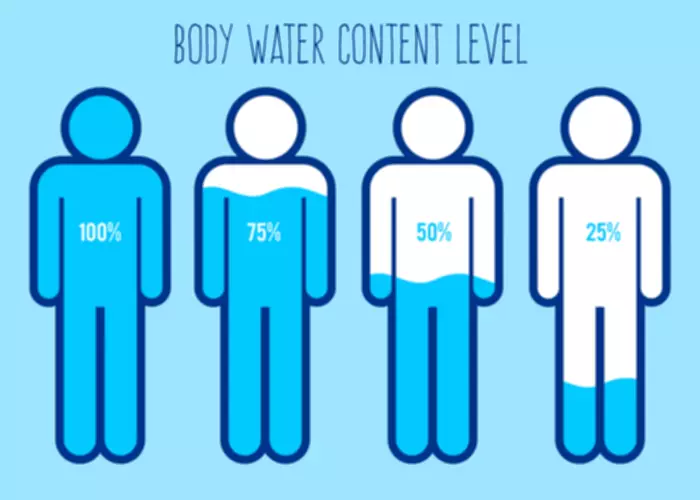Content
Similar to described for women, ethnic minority groups also may view 12-Step group meetings comprising primarily majority White members as less welcoming and supportive. However, there does appear to be evidence that ethnic minorities may involve themselves to the same extent in and derive comparable benefits as Whites from 12-Step programs (Hillhouse & Fiorentine, 2001). Also, a number of 12-Step programs, including AA and NA, have women’s-only groups that may be seen by many women as more welcoming and supportive and, thus, are more likely to be attended than mixed gender groups.
Although viewed as not being scientifically rigorous and as based on self-selected convenience samples, the findings with respect to meeting attendance and length of abstinence are of interest. The median length of abstinence reported by AA and NA members is greater than 5 years, with roughly one third of each of the three groups having between 1 to 5 years of abstinence. Respondents reported attending, on average, two to four meetings per week.
Ways To Spot A Closet Drinker
Newcomers often are asked how was their life unmanageable. Clients get feedback from their community members, which allows them to be both challenged and supported. In time, through trial, error and immense pain, this myth of power (lending itself to miscalculated confidence) became my terrifying reality; spiritual chaos. Finally, the night prior to the event, as I started yet another vain attempt at writing my thoughts on paper, I realized I was using an old notebook as a sturdy surface to write upon.

It also does not mean that you are not a strong person to handle recovery. The journey of self-discovery is truly beautiful, but it is not always easy. In order to discover ourselves thoroughly we must be completely honest with ourselves, and this means taking a fearless and searching look at the good and the bad simultaneously. For some of us, looking at the good parts of ourselves is even more difficult than coming to terms with the bad.
ways my life has become unmanageable due to drugs and alcohol
It begins, God, grant me the serenity to accept the things I cannot change – a reminder that there are some things in life we can’t control. The pandemic is one of them, as are natural disasters like hurricanes, wildfires, floods, earthquakes, etc. We become helpless in the face of overpowering forces. We feel hopelessness and despair upon seeing loved ones taken and homes and property destroyed. Anxiety, panic, depression, and guilt are never far off during these times. Natural disasters present paradigm examples of human powerlessness.

It is said the 12 steps of AA is compared to markers put out lovingly on a path by those who preceded us, to direct us on our journey. The journey can seem daunting from the perspective of a person at the beginning but fortunately all we are asked to do is to take one step at a time. Unfortunately, there was an entire self-help industry out there waiting to enable us in denial. Their sales pitch is that 12 Step programs, whether AA or NA, make us weak by brainwashing us into thinking we are powerless. The power is in us, they say, and in the books and programs they sell. Admitting you have a problem is always said to be the first step of recovery.
Here’s what author and interventionist Jeff Jay has to say about Step One and being powerless:
The power of admitting you are powerless is the first step to getting your life back. This approach has also been formalized into a relatively brief intervention that could be implemented in a number of settings. It was called “systematic encouragement and community access” and involved a counselor calling a community 12-Step volunteer. The volunteer in turn would talk to the person about the meeting, offer to provide a ride to the meeting, and later call to remind the person about the meeting and encourage attendance (Sisson & Mallams, 1981). Subsequently, an individually administered three-session intensive referral procedure has been developed which more fully standardizes this process (Timko et al., 2006). The initial session, which lasts between 45 to 60 minutes, provides information about 12-Step approaches, explores concerns and expectancies the person may have, and facilitates the linkage between client and community volunteer.
When I opened this tablet, the first few pages were filled with the words that follow, written at 6 months of sobriety.
With addiction, there are a lot of emotions that come with the territory. From feelings of guilt and embarrassment to powerlessness and helplessness, it can be hard to determine which one is actually the most accurate representation powerless over alcohol of how we feel. Initially the drink gave me pseudo power when I never felt I was enough. Power to boldly walk in front of my peers; not filled with fear. Alcohol truly served as my personal wolf in sheep’s clothing.
This can be a confusing concept, seeing as admitting powerlessness might seem like it means admitting helplessness – admitting an inability to change or heal. In reference to addiction recovery, powerlessness simply means that we have lost the ability to control our intake mood and mind altering substances. An intervention that falls midway along the continuum between “doing” (e.g., getting the individual to meetings) and “understanding” is Making A.A. Easier (MAAEZ; Kaskutas & Oberste, 2002; Kaskutas, Subbaraman, Witbrodt, & Zemore, 2009). MAAEZ is a relatively brief, structured, manual guided intervention.
How to Simplify and Interpret Step One, Then Put It into Action
Currently enrolled in a master’s program for Social Work, he is committed to expanding his knowledge and providing comprehensive care. Inspired by his upbringing in Bolivia, marked by poverty, unaddressed mental https://ecosoberhouse.com/ health, and substance use, he brings a unique perspective to his role as a Primary Therapist at the Freedom Center. He tailors treatment plans to meet individual needs, fostering healing and growth.
- Erin decided to switch careers and went back to school to obtain her Addiction Counseling certification.
- When you admit that you are powerless over alcohol, you’re accepting that alcohol should not even be in your life anymore.
- The 2007 AA membership survey, for example, found that 39% of members reported that they were referred to AA by a health care professional (AA, 2008).
- According to Twelve Steps and Twelve Traditions (1981), “Few indeed were those who, so assailed, had ever won through in singlehanded combat.
- Of this number, approximately 45% attended because of alcohol only, 22% because of illicit drug use only, and 33% because of alcohol and illicit drug use.